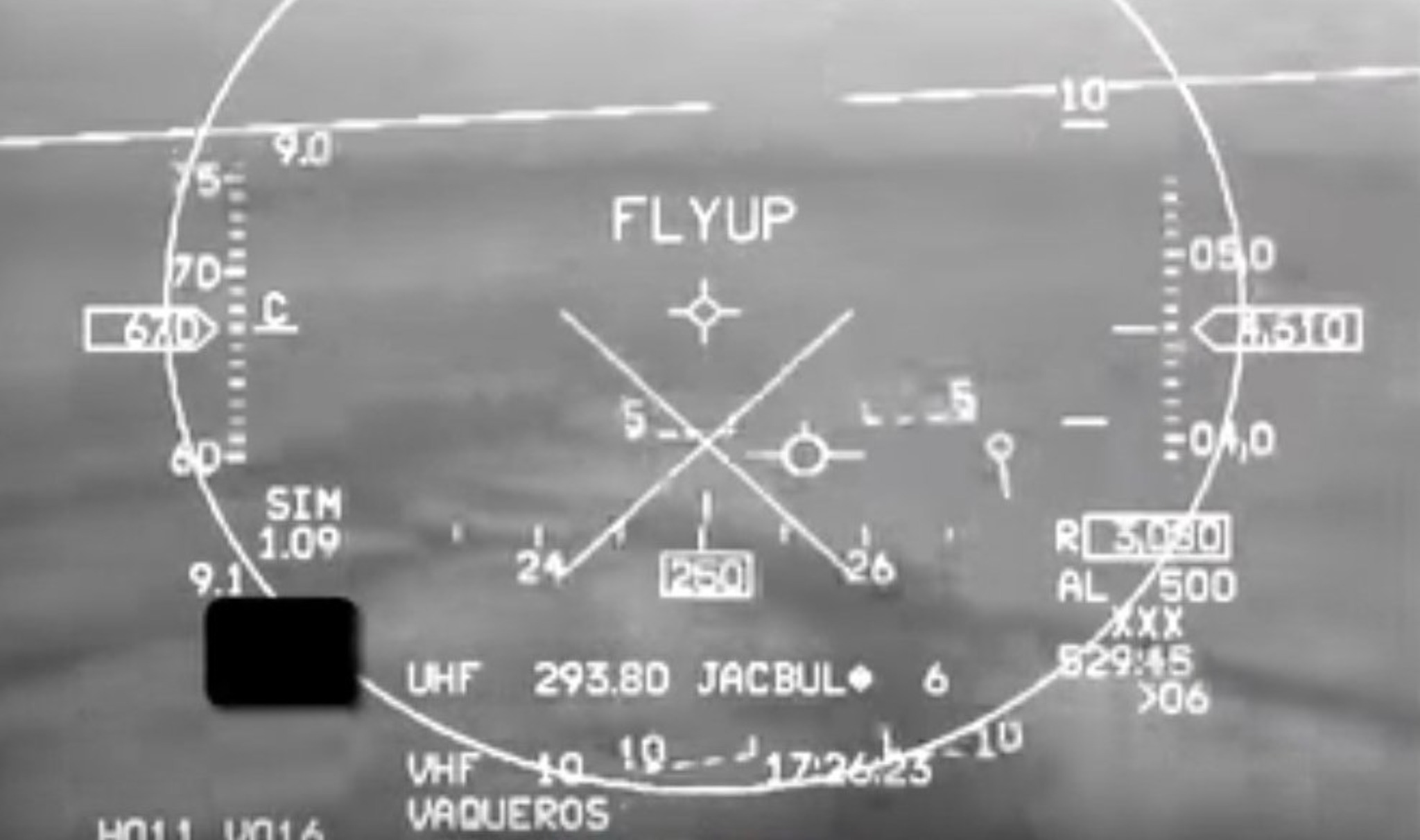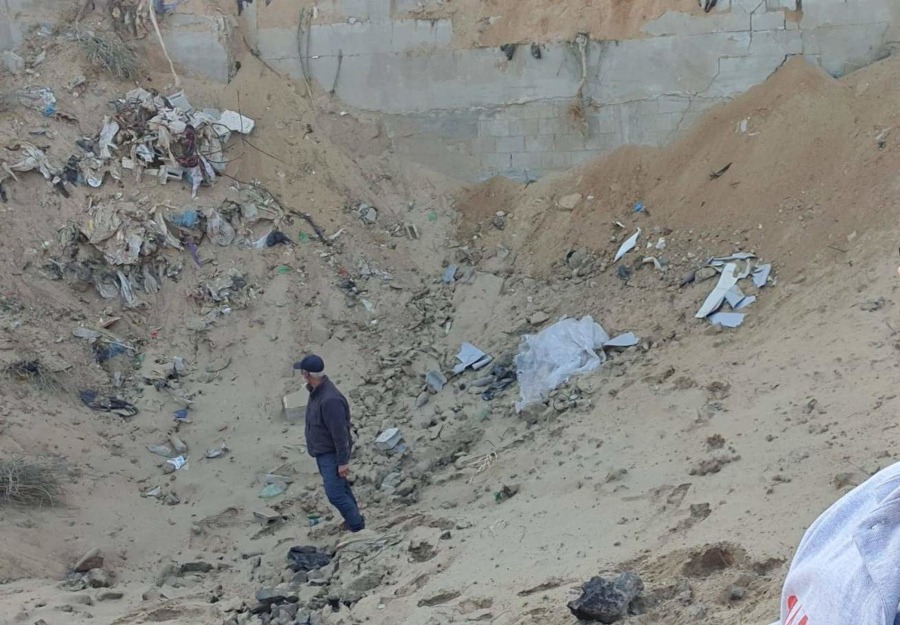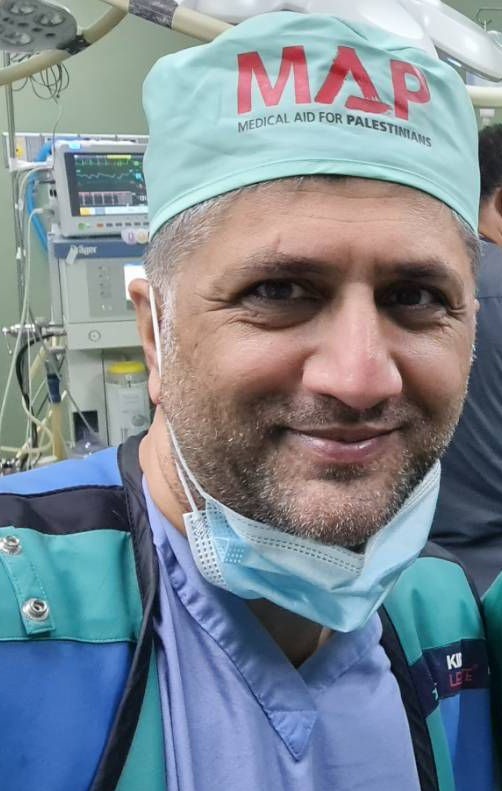When Israel bombed British doctors using UK weapons
An airstrike on a medical compound in Gaza exposes Britain’s complicity with Israeli war crimes.
IAIN OVERTON
26 November 2024
DECLASSIFIED UK

The crater left after the bombing of the MAP villa. (Photo: Amer Shoaib)
On 18 January 2024, a bomb exploded beside a villa in Gaza, housing international doctors working for the charity Medical Aid for Palestinians (MAP).
Despite the building being “deconflicted” — a designation meant to ensure its protection under International Humanitarian Law (IHL) — the strike injured two staff members and left the structure severely damaged.
Among the survivors was Amer Shoaib, a British orthopaedic surgeon working for MAP UK. Dr Shoaib, a veteran of the Royal Army Medical Corps, narrowly escaped the attack.
“Everything went completely white, and the ceiling and windows caved in,” Dr Shoaib recalls. “We were lucky. It was a minor miracle just because of where the bomb landed.”
An investigation by the United Nations Mine Action Service (UNMAS) has since revealed troubling evidence about the attack.
The findings suggest the airstrike may have involved UK-manufactured components, raising serious concerns about Britain’s role in the violence in Gaza.
The bomb used in the attack on MAP’s villa, potentially a GBU-32 (Mk 83) equipped with a delay fuse, was delivered by an F-16 fighter jet.
These jets, outfitted with advanced missile-launching kits and display systems supplied by British defence giant BAE Systems, have been integral to Israel’s military campaigns in Gaza.
RELATED

UK refuses to say if Israel bombed British doctors with...READ MORE

The crater left after the bombing of the MAP villa. (Photo: Amer Shoaib)
On 18 January 2024, a bomb exploded beside a villa in Gaza, housing international doctors working for the charity Medical Aid for Palestinians (MAP).
Despite the building being “deconflicted” — a designation meant to ensure its protection under International Humanitarian Law (IHL) — the strike injured two staff members and left the structure severely damaged.
Among the survivors was Amer Shoaib, a British orthopaedic surgeon working for MAP UK. Dr Shoaib, a veteran of the Royal Army Medical Corps, narrowly escaped the attack.
“Everything went completely white, and the ceiling and windows caved in,” Dr Shoaib recalls. “We were lucky. It was a minor miracle just because of where the bomb landed.”
An investigation by the United Nations Mine Action Service (UNMAS) has since revealed troubling evidence about the attack.
The findings suggest the airstrike may have involved UK-manufactured components, raising serious concerns about Britain’s role in the violence in Gaza.
The bomb used in the attack on MAP’s villa, potentially a GBU-32 (Mk 83) equipped with a delay fuse, was delivered by an F-16 fighter jet.
These jets, outfitted with advanced missile-launching kits and display systems supplied by British defence giant BAE Systems, have been integral to Israel’s military campaigns in Gaza.
RELATED

UK refuses to say if Israel bombed British doctors with...READ MORE
‘Clear risk’
For years, human rights organisations have condemned the UK’s export of components for these jets. Yet, their warnings have gone unheeded.
Indeed, the complicity of the British government in such attacks is not incidental but systemic.
This was evidenced in September 2024, when the UK suspended exports of F-16 components to Israel following mounting evidence of IHL violations.
The UK’s IHL Cell concluded there were clear risks these exports could be used to commit or facilitate further breaches of international law.
However, even this partial suspension came with notable exemptions, particularly for components related to another type of fighter jet, the F-35.
The Secretary of State’s reasoning — that halting these exports would harm international relations with the US and NATO — prioritised strategic alliances over civilian lives.
Documents revealed in the High Court show that licences for F-35 components were excluded from the September suspension due to their “profound impact on international peace and security” – alluding to Britain’s ‘special relationship’ with the US, which leads the F-35 program.
This carve-out raises ethical concerns, as it openly acknowledges the risk of these components contributing to serious violations of IHL but – in the absence of a full-scale arms export ban – appears to still prioritise commercial and strategic interests.
‘Subsurface detonation’
Such weapons have real life consequences, as the UNMAS report of the 18 January attack grimly illustrates.
At 5:55 AM, a sub-surface detonation occurred just six metres from the MAP villa’s boundary wall, creating a crater 13 metres wide and six metres deep.
The resulting overpressure shattered windows, dislodged door frames, and cracked walls throughout the building, rendering it uninhabitable.
Two staff members sustained injuries from flying glass, while the remaining medical team were left grappling with the psychological trauma of what could easily have been a fatal strike.
“Had the munition struck the building,” the report states, “the outcome would have been catastrophic, particularly as it was occupied at the time.”

An inspector examines the blast site. (Photo: Amer Shoaib)
The UNMAS report refrains from assigning intent to the attack, as is common in post-strike analyses.
But it does pose hard questions: “Was it targeting the building by error and missed? Was it supposed to miss, but still cause significant damage? Was it targeting something below ground in that area? Or was the target elsewhere and it was a guidance failure?”
For those on the ground, there were far fewer questions, just stark realities.
“Through the approved deconfliction process, they knew where we were every second of every day,” Dr Shoaib told Declassified. “They used the location data we gave them for deconfliction to deliberately target us as a humanitarian mission.”
He added: “The excuses for targeting a foreign medical team ranged from ‘it must have been a Hamas misfire’ to ‘it was a genuine mistake’ to ‘there were Hamas operatives nearby.’ We have heard these same excuses rattled out again and again to justify every war crime that has resulted in public outrage.”
The British doctor, then, raises the most critical of questions: why has the UK government not responded in full to the role of British-manufactured components in such attacks on British medics?
The UNMAS report refrains from assigning intent to the attack, as is common in post-strike analyses.
But it does pose hard questions: “Was it targeting the building by error and missed? Was it supposed to miss, but still cause significant damage? Was it targeting something below ground in that area? Or was the target elsewhere and it was a guidance failure?”
For those on the ground, there were far fewer questions, just stark realities.
“Through the approved deconfliction process, they knew where we were every second of every day,” Dr Shoaib told Declassified. “They used the location data we gave them for deconfliction to deliberately target us as a humanitarian mission.”
He added: “The excuses for targeting a foreign medical team ranged from ‘it must have been a Hamas misfire’ to ‘it was a genuine mistake’ to ‘there were Hamas operatives nearby.’ We have heard these same excuses rattled out again and again to justify every war crime that has resulted in public outrage.”
The British doctor, then, raises the most critical of questions: why has the UK government not responded in full to the role of British-manufactured components in such attacks on British medics?

Dr Amer Shoaib in Gaza. (Photo: Amer Shoaib)
A history of complicity
This is not a new question. The UK’s involvement in arming Israel is not recent.
In 2009, after Israel’s Operation Cast Lead, then-foreign secretary David Miliband admitted that British-made components had been used in F-16 fighter jets.
“The F-16 was widely used, including for the delivery of precision-guided ordnance,” Miliband said.
While direct exports of F-16 parts to Israel were suspended in 2002, British components continued to be exported to the United States, with Israel as the final end-user.
These exports included critical systems such as head-up displays and missile-guidance kits. Such systems have had consequences.
Since 2010, Action on Armed Violence (AOAV) has recorded 2,837 injurious Israeli airstrikes on Gaza, each individually reported by English language media.
From this, 27,118 civilians were reported harmed, including 16,827 killed and 10,291 injured.
It is almost certain that British-made weapon systems played a role in many of these deaths.
But despite repeated calls to halt export licences in the face of such violence, the UK government has largely ignored such pleas.
It wasn’t until September 2024 — months after the MAP villa bombing and under a new British government — that Labour’s trade secretary Jonathan Reynolds announced the suspension of licences for F-16 components. But he did not suspend all arms exports.
This half-decision came far too late for those caught in the crossfire, like Dr Shoaib.
The attack on their home disrupted MAP’s critical mission, forcing the medics to evacuate prematurely and leaving Gaza’s overstretched healthcare system without vital support.
The bombing of the MAP villa is a stark reminder of the human cost of inaction. For Dr Shoaib and his colleagues, it was a near-death experience. For the UK government, it represents an opportunity to finally prioritise human rights over profit.
Whether it will fully seize this moment and ban all future arms exports to Israel seems unlikely. A half-hearted compromise appears far more probable. And even more civilian deaths, a certainty.
Still, there are those unwilling to accept inaction. Palestinian human rights group Al-Haq is more resolute, pushing for a full embargo on arms exports to Israel and now plans to apply for an emergency injunction at the High Court in London.
This move is prompted by the International Criminal Court’s arrest warrant for Israel’s prime minister, who stands accused of depriving “the civilian population in Gaza of objects indispensable to their survival, including…medicine and medical supplies”.
The bombing of a compound housing British doctors being a stark example of the ways in which Palestinian access to healthcare has been so obstructed in this war.
ABOUT THE AUTHOR

Iain Overton is the Executive Director of Action on Armed Violence.
No comments:
Post a Comment